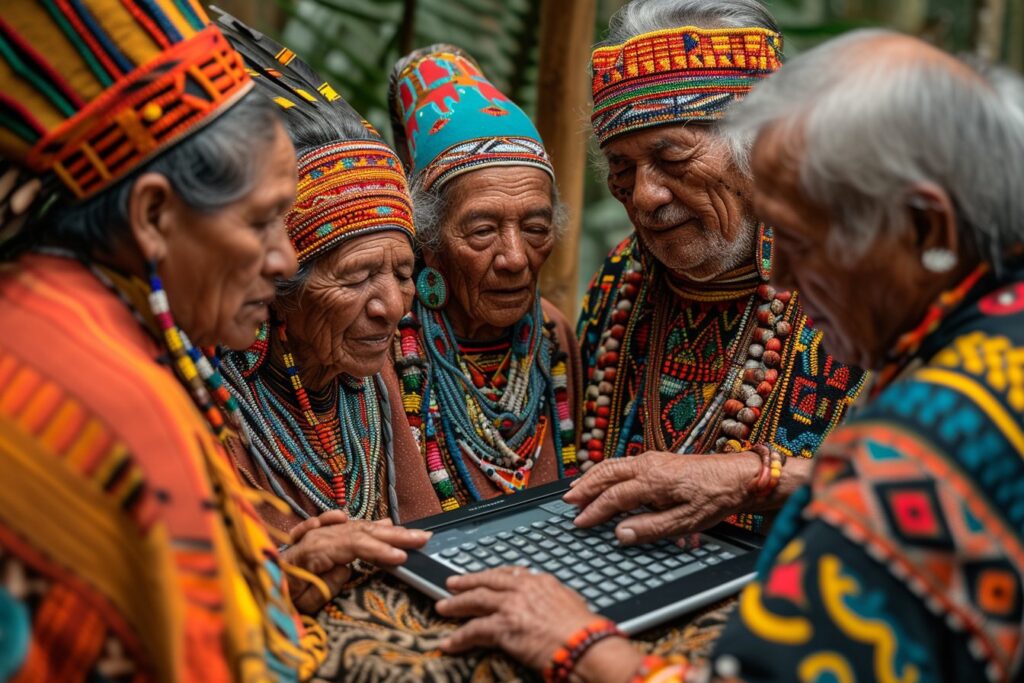A Step Towards Saving Disappearing Languages in the Amazon
Despite being considered as culturally rich and diverse, the linguistic heritage of Brazil’s indigenous populations remains under threat. According to a 2018 UN report, half of these languages are predicted to disappear by 2100. However, a breakthrough application called Linklado is helping to preserve around forty endangered Amazonian languages by enabling these communities to type messages in their native tongues on phones and computers.
The Evolution of Linklado: From an Idea to Reality
Created in August 2022, Linklado gets its name from combining “lin” that represents indigenous languages and “klado,” derived from the Portuguese word “teclado,” meaning keyboard. The app aims to bridge the communication gap experienced by indigenous peoples living in remote regions of the Amazon when using digital devices.
- Designed by teenagers: The initiative was indirectly born out of one biologist’s struggle to translate her research work and share it within local community groups due to incompatible keyboards.
- Educational use cases: In addition to everyday communication, the tool enables translation of books and other texts from Portuguese into various indigenous dialects, further preserving the unique history of each tribe.
Breaking Language Barriers for Indigenous Populations in Brazil
Mobile phones have become indispensable across the globe, including Brazil, which boasts over 200 million connected citizens, among them, 1.7 million Indigenous people. Up until now, however, most Brazilians with limited Portuguese proficiency had no choice but to communicate through audio messages due to inadequate keyboards.
Noemia Ishikawa, coordinator of the Linklado project and a biologist who spent 14 years demanding a keyboard to address this issue, believes the app brings immense benefits for indigenous societies. Cristina Quirino Mariano, a 30-year-old from the Ticuna community, echoes her sentiments: “The Linklado application brings many good things for me and indigenous peoples.”
Using Advanced Technologies to Empower Vulnerable Communities
This technological milestone goes beyond mere convenience; it serves as a powerful tool for revitalizing endangered languages and shaping identities for centuries to come. With additional resources required to produce accurate transcriptions of these dialects using Latin alphabet characters and custom accents, digital advancements like Linklado have emerged as a critical driving force for societal change.
Taking Steps Towards Cultural Preservation and Linguistic Diversity
The launch of the Linklado application has undoubtedly proven to be a significant leap forward in preserving indigenous languages within Brazil. However, more comprehensive efforts are required to ensure that these cultures continue to thrive in an increasingly interconnected global landscape.
- Increased awareness and support: For at-risk tribes and their unique ways of life to make progress, sustained public interest and international assistance are essential.
- Encouraging bilingualism: Multilingual skills help in day-to-day communication while also providing members with better opportunities for employability and personal development.
- Promoting language preservation initiatives: Collaborative projects between organizations and communities focusing on digitization, documentation, and revitalization of threatened languages can considerably increase their chances of long-term survival.
A Small Step, Yet an Impactful One
Linklado represents a crucial step in addressing the challenges faced by indigenous populations in Brazil, whose distinctive languages have served as a window into their unique histories and cultural identities. By enabling users to communicate effectively in their native dialects, this innovative app offers a valuable solution for connecting tribes with technology while also promoting diversity and protecting some of the world’s most endangered languages.


